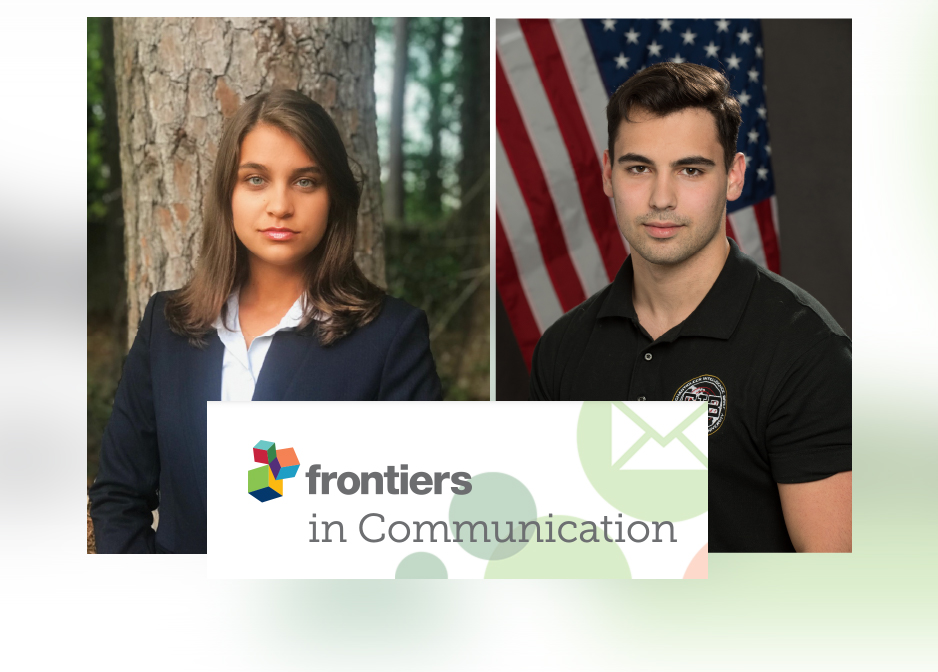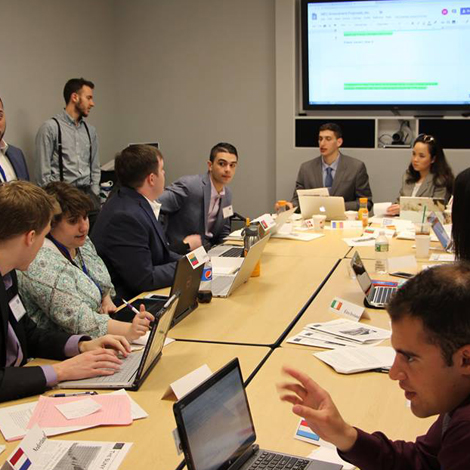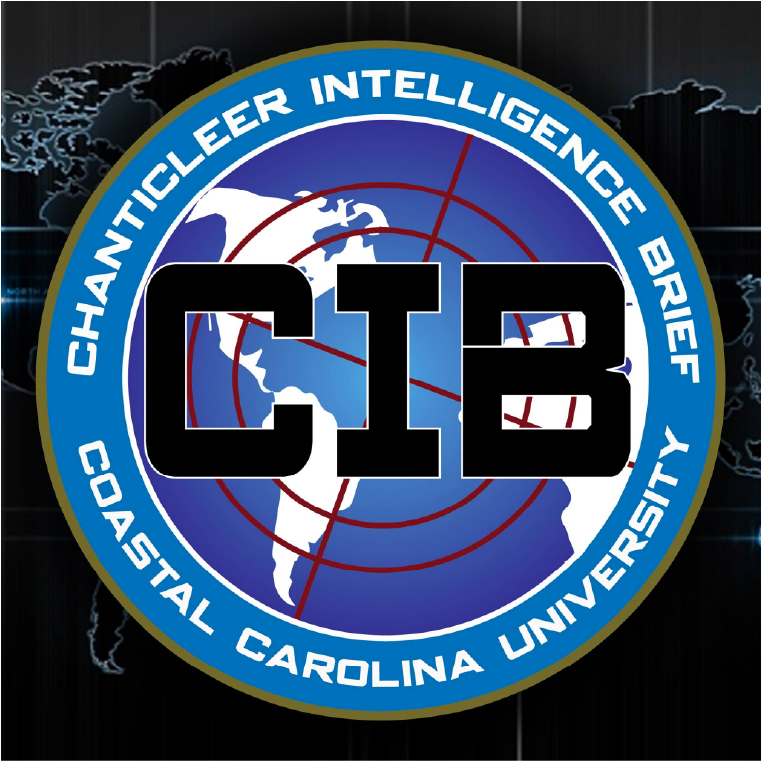A triumph and a warning
CCU students publish peer-reviewed journal article on early predictions of COVID-19
While many college students were struggling to adapt to the new normal during the 2020 COVID-19 pandemic, two Coastal Carolina University students quickly shifted their academic focus to the immediate global problem. These students began researching and reporting on the pandemic from a national security perspective back in March; by December, they had achieved an academic tour de force: publication in a peer-reviewed journal about a still-evolving global security issue.
Junior Ana Maria Lankford and senior Derrick Storzieri, both intelligence and national security studies (INTEL) majors, developed the project as an extension of their work with the Chanticleer Intelligence Brief (CIB), a pre-professional intelligence experience at CCU. The final product is an article titled “Spies and the Virus: The COVID-19 Pandemic and Intelligence Communication in the United States,” co-written with Joseph Fitsanakis, associate professor of INTEL in the Department of Politics. The piece was published in a special issue of Frontiers in Communications, an academic journal on disaster, health, and science and environmental communication.
 Students Ana Maria Lankford (left) and Derrick Storzieri (right) published a peer-reviewed article in Frontiers in Communication in Fall 2020.
Students Ana Maria Lankford (left) and Derrick Storzieri (right) published a peer-reviewed article in Frontiers in Communication in Fall 2020.
Photos courtesy of Lankford and Storzieri respectively.
“It is extremely rare for undergraduate students to publish peer-reviewed research,” said Fitsanakis. “And, notice that I am the third author of the article. That’s because Ana Maria and Rick did the majority of the work.”
Lankford and Storzieri are executive officers with the CIB, which shifted operational gears in March 2020 from broad analysis of global national security issues to establishment of the CIB COVID-19 Intelligence Project. Through this endeavor, Lankford’s research uncovered a surprising scenario.
“I came across a lot of articles and declassified intel documents that discussed the potential for a pandemic-like situation nearly -- or exactly -- like what we’re facing now with the COVID-19 pandemic,” said Lankford. “These reports have been going on over the last decade – more than a decade, actually -- and it was contradictory to what we were hearing in press conferences by our top policy and decision makers, who were saying that the pandemic came out of nowhere.”
Lankford shared her discoveries with Storzieri, and over the next several months, the pair worked in tandem to piece together an analysis of the data. When they uncovered a document from the Office of the Director of National Intelligence (ODNI), they knew their hypothesis had legs.
“I found a 2004 report titled ‘Mapping the Global Future,’ which talked about the prevention of derailment of globalization because of a COVID-19-like virus,” said Storzieri. “There is discussion of an upper respiratory syndrome similar to the 1918 influenza, and that it would most likely come from a population that was underdeveloped but still had a very high population density, like China,” said Storzieri. “When I read that, right then and there, I knew we had struck gold with this article for sure.”
The report’s concept of globalization, and the way a pandemic would impact it, was uncanny in itself, Storzieri said.
“They were projecting that the use of technology in our daily lives would lead to globalization, including increased travel, so that we’re all interconnected, but interconnection also means that transmission of diseases becomes much more prevalent. The whole report assessed their best guesses as to what would happen in the year 2020. Within two years, they said, the virus could derail globalization; it could isolate the economy; if the death toll exceeds 3 million, it could completely stop global trade -- all of it, they predicted 16 years in advance.”
The authors compiled this information and worked with Fitsanakis over several months through the process of preparing an article for peer review submission.
“Ana Maria and Rick were basically charged with this question: ‘What’s the early warning role of the intelligence community?’ said Fitsanakis. “Our article shows there’s a 15-year history of reports by various agencies in the intel community: the Pentagon, civilian agencies, and so forth, warning that this is coming. It’s not a matter of if; it’s a matter of when. So, it’s not like decision makers at the top didn’t know this was coming; it’s just that nobody thought it was going to happen to them.”
Rather than assigning accountability, however, the article – in keeping with disciplinary standards – simply presents evidence of the ample warnings.
“Our job is to look at the data and try to find solutions to existing problems,” said Fitsanakis. “We are not politicians; we are examining the role of the intelligence community. What can the intelligence community do the next time to make sure this doesn’t happen again?”
The answer, the article concludes, is to develop a better communication system.
“Our paper posits that the means of strategic communication employed by intelligence experts to alert the White House to the threat were unproductive,” said Fitsanakis. “We propose, therefore, that the United States intelligence community must implement more direct, immediate, and conclusive methods of communicating intelligence to decision-makers, and should seriously consider creating a new line of products that addresses existential challenges to national security.”
Fitsanakis also noted how CCU’s INTEL program is working to produce analysts like Lankford and Storzieri and emphasized the central role these students will play in the near future.
“The greatest thing about those two is their adaptability — the ability to change very quickly what they’re doing and how they’re doing it when a crisis occurs,” said Fitsanakis. “It was great to see that the CIB and these students switched everything they were doing and focused on the pandemic.”
Lankford and Storzieri both emphasized that all individuals, not just those in the intelligence community, would benefit from this article.
“I recommend it to anyone who has had their lives altered by the COVID-19 pandemic,” said Lankford. “It will open a lot of people’s eyes to what is happening in our country and the world as far as our top government officials and how they work with the intelligence community.
“Ultimately, you see that these relationships and how these entities communicate has an effect on how we function in our daily lives.”
Learn More
Learn more about related programs of study and initiatives.




